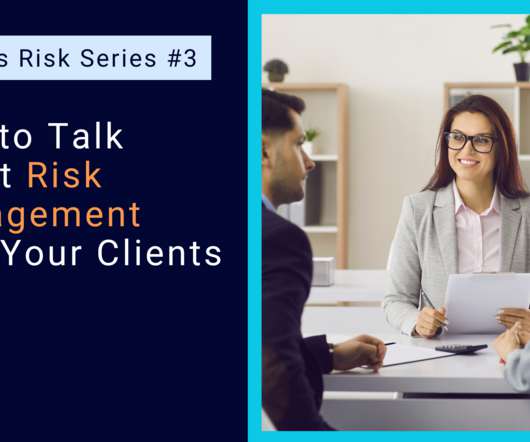How to Talk About Risk Management With Your Clients
BlueMind
OCTOBER 25, 2022
The coronavirus outbreak has wreaked havoc on people’s daily lives and the financial world. When it comes to their investment portfolios many tend to have a low-risk tolerance and with the unsettling economic situation with the ongoing pandemic, the word “risk” has become even more of a fearsome word for clients.












Let's personalize your content